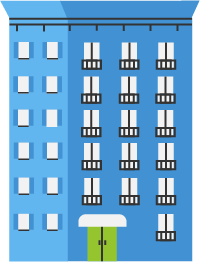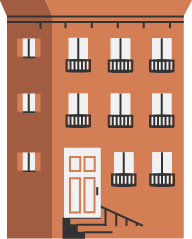



If you suffer a loss in your condo unit, your insurance, as well as the co-ownership syndicate’s insurance may come into play. This applies both to a loss that damages several units, and a loss that damages only your unit.
Your co-ownership syndicate is legally obliged to declare and to take charge any loss to its insurer, whether to the common portions or private portions of the building.
Under the Civil Code of Quebec, any “interested person” may also declare the loss to the syndicate’s insurer. Thus, the co-owner is deemed to be an interested person as a loss to the building could impact the value of his unit.
Consequently, as a co-owner, you have the right to file a claim regarding a common or private portion with the syndicate’s insurer, and this, even if the syndicate opposes this. However, it is always preferable to obtain the cooperation of the syndicate to facilitate claims settlement.
If the loss is covered, your insurer and the syndicate’s insurer must restore your property and your condo unit to the same state as it was before the loss. They are obliged to repair or replace the damaged personal property and building portion.
If your condo is damaged, specifications must be drawn up to assess the cost of reconstructing the damaged premises. Your insurer and the syndicate’s insurer will have the damaged or destroyed portions repaired or rebuilt. If you decide not to have these repairs made, you will be compensated as per the terms and conditions of the policies (yours and that of the syndicate).
Where possible, personal property will be repaired rather than replaced. If you chose compensation without depreciation, commonly known as “replacement cost”, this means items will either be replaced or repaired with new materials of the same nature and quality as what you had.
Your co-owner insurance and the syndicate’s insurance comprise deductibles and different coverage amounts which will determine the maximum compensation you will be able to receive, as well as the amount you will have to assume.
If the amount of the syndicate’s insurance is not sufficient, it may require a contribution from each co-owner. This special assessment is known as apportionment.
To know your obligations and those of the syndicate when it comes to insurance, make sure you also read your declaration of co-ownership.












